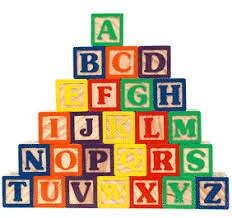I think it’s important to see that "writing" sits on a wide spectrum from writing-to-inform at one end to writing-to-entertain at the other. An owner's manual for a new car is at one end. Poetry is at the other end. Reviews are usually someplace in the middle. If you're reviewing car batteries, you're probably not going to do much to entertain your reader, who’s just in it for the info. But reviews of more aesthetic experiences, such as restaurants, movies, music, and books, tend to have more entertaining language.
So what makes sentences interesting?
Your writing students (or your children at any level who are in writing classes in school/college) should be learning the following 10 fundamental writing concepts/skills. If they have these skills, they will be well on their way to mastering “practical writing,” the kind of writing they’ll need to do in school/college and for the rest of their lives at work.
If they don’t have these skills, you should be asking their writing teachers why not!
Most people, including most students, are practical; they learn best when they feel they're gaining a skill that will actually be useful to them in their lives. Once convinced there's something truly useful to learn, they learn best when the skill is broken down into its component steps and taught to them one step at a time. (One phrase for this approach is Task Analysis, an approach well known to computer program designers.)
My beginning observation is obvious enough...so it's important when teaching writing to ask two fundamental questions:
what is the practical use of writing that students will want to learn?
how exactly does my approach to one-step-at-a-time writing instruction work?
A former colleague, a professor who spent years teaching writing, emailed me a complaint: "Why do you think you're so much better at teaching writing than everybody else?"
Ouch.
It's 1987. In the English department at Towson State University, there's a knock on my office door . A woman has come from Washington, D.C., looking for a colleague who never shows up. I discover that she's come to recruit my colleague to help her organization write better. It turns out she's a Ph.D. from Minnesota. Wrote her dissertation on Emily Dickinson, whom I apotheosize. Soon she asks me a question that changed my life....
I've been reading articles about a big issue: the way we teach writing in school/college is broken. Many students aren't learning to write well. Businesses are complaining loudly.
These articles suggest fixes, most often GETTING BACK TO BASICS. But in these articles, I see a glaring problem: they have a wrongheaded or outdated idea about WHAT THE BASICS ACTUALLY ARE!
Yes, as ridiculous and as boastful as this sounds, I do have a better idea. And it's fairly simple. In fact, I have a few better ideas about helping students learn to write....
Getting reviewers' comments on writing at work, for most staff, feels like a trip to the woodshed. It shouldn't. In an office, we're not in school anymore. Those who review our writing are not our teachers grading us. Writing in the workplace is a team activity. The goal is to produce the most useful documents--of all kinds--possible. So, please slaughter my writing, please!








